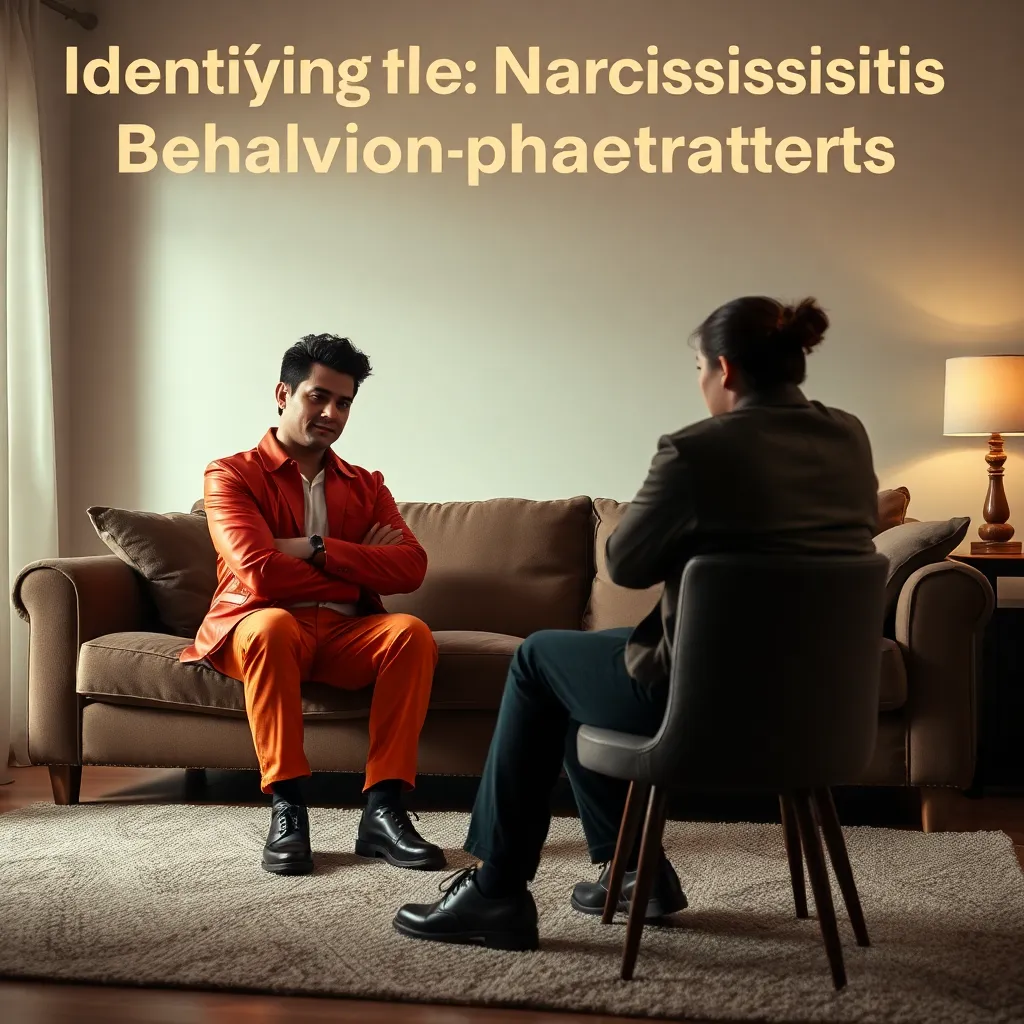Navigating relationships can be a complex and often bewildering journey, especially when you find yourself entangled with someone who seems to drain your emotional reserves. If you’ve ever felt confused, manipulated, or consistently belittled, you might be dealing with a narcissist—a personality type that can be particularly challenging to identify and even harder to extricate yourself from. Understanding the ways a narcissist targets you is crucial for safeguarding your emotional well-being and reclaiming your sense of self.
This topic holds immense importance because recognizing these patterns is the first step toward empowering yourself and setting healthy boundaries. With heightened awareness, you can begin to see through the charming facade and identify the subtle tactics often used to ensnare you in a cycle of manipulation. In this article, we will explore the specific strategies narcissists employ to target and trap their victims, providing you with the knowledge to protect yourself and nurture healthier connections.
As we delve into this subject, you’ll gain insights into the red flags that often go unnoticed in the early stages of a relationship. You’ll learn practical steps to fortify your emotional resilience and strategies to distance yourself from toxic influences. By the end of this journey, you’ll be equipped with the understanding and tools necessary to break free from the grip of narcissistic manipulation, fostering a path toward healthier, more fulfilling relationships.
1. Identifying Narcissistic Behavior Patterns

In the realm of relationships, it’s crucial to understand how a narcissist operates to effectively protect yourself. They often exhibit patterns of behavior that are both consistent and predictable, making them identifiable if you know what to look for.
Firstly, a narcissist will likely engage in what is known as love bombing. This is where they overwhelm you with excessive attention, flattery, and affection to gain your trust and affection quickly.
Imagine a partner who showers you with compliments and expensive gifts early in the relationship. While this might feel romantic, it can be a sign of manipulation if it seems too intense or too fast.
Another common tactic is the use of gaslighting, where the narcissist attempts to make you doubt your own perceptions or feelings. This can leave you feeling confused and questioning your reality, often in subtle ways that are hard to pinpoint.
Experts suggest keeping a journal of your interactions to help identify patterns of manipulation. By documenting these interactions, you can more clearly see the behaviors that might otherwise seem innocuous in isolation.
Ultimately, recognizing these behavior patterns is the first step in protecting yourself from a narcissist’s influence. Awareness empowers you to set boundaries and maintain your emotional well-being in the relationship.
2. Recognizing Emotional Manipulation Tactics

Narcissists are adept at using emotional manipulation tactics to keep you off balance and under their influence. They often employ strategies like gaslighting, where they make you question your own reality, leaving you feeling confused and powerless.
In relationships, a narcissist might shower you with affection one moment and withdraw it the next, creating a cycle of hope and despair. This emotional roller coaster can leave you constantly seeking their approval, making it difficult to recognize their manipulative behavior.
Consider the scenario where your partner dismisses your feelings by saying, “You’re overreacting.” This is a classic example of how a narcissist tries to invalidate your emotions, making you doubt your own instincts and judgments.
Pay attention to these patterns, as they are often subtle but persistent. Building awareness of such tactics is the first step towards reclaiming your emotional autonomy and setting healthier boundaries in your relationships.
Understanding these manipulation tactics can empower you to make informed decisions about your relationships. Remember, the goal is to cultivate connections based on mutual respect and genuine care, free from emotional games.
3. Vulnerabilities Narcissists Exploit

In the complex dance of relationships, narcissists often focus on exploiting your vulnerabilities to gain control. They may zero in on insecurities, such as past relationship failures or feelings of inadequacy, using these to create a sense of dependency. Picture a partner who constantly brings up your past mistakes, making you question your self-worth. This tactic allows narcissists to maintain a position of power, subtly manipulating how you perceive yourself.
It’s important to recognize that narcissists often prey on those who are naturally empathetic and caring. Your genuine desire to help and understand others can become a tool for manipulation in their hands. Imagine being drawn into endless conversations where your partner always ends up as the victim, needing your constant support. While it’s admirable to be supportive, it’s crucial to set boundaries to protect your own emotional well-being.
Financial insecurities can also be a target for narcissists, offering control through financial manipulation. For example, a narcissistic partner might insist on managing household finances, gradually limiting your access to money. This creates a dependency that can be difficult to break free from, as financial control becomes a lever for broader dominance in the relationship.
Being aware of these vulnerabilities allows you to take steps to protect yourself from such manipulative tactics. Building self-awareness and self-confidence can greatly reduce a narcissist’s power over you.
By understanding and addressing your own vulnerabilities, you empower yourself to maintain healthier, more balanced relationships.
4. Spotting Love-Bombing Techniques

Narcissists often begin their manipulation with a tactic known as love-bombing. This involves showering their target with excessive attention and affection, making the person feel incredibly special and valued.
Imagine meeting someone who seemingly knows exactly what to say to make you feel like you’re the center of the universe. This is a common scenario where a narcissist uses compliments and extravagant gestures to build a powerful emotional connection.
Experts suggest that love-bombing is a strategic move to quickly establish a sense of dependency. By creating an intense emotional bond, the narcissist can more easily manipulate and control the relationship.
To protect yourself, it’s essential to recognize these early signs and maintain a sense of self-awareness. You might find it helpful to take a step back and evaluate whether the relationship is progressing too quickly or feels too perfect.
Ultimately, understanding the concept of love-bombing can empower you to set boundaries and make informed decisions. The key takeaway is to trust your instincts and prioritize your emotional well-being in any relationship.
5. Protecting Yourself from Harm

Recognizing the signs of narcissistic behavior is the first step in protecting yourself from harm. In any relationship, it’s essential to trust your intuition when something feels off or overwhelming, such as excessive flattery or attention.
Once you identify these tactics, setting firm boundaries becomes crucial. It’s important to communicate your needs clearly and assertively, ensuring that your personal space and emotional well-being are respected.
Consider seeking support from friends, family, or a mental health professional who can offer perspective and guidance. Having a strong support network can help you stay grounded and provide a reality check when emotions are running high.
Finally, remember that self-care is a powerful tool against manipulation. By prioritizing activities that nourish your mind and body, you reinforce your inner strength and resilience.
Conclusion: Creating Beautiful Outdoor Spaces
In understanding how a narcissist targets you, we explored five key concepts: recognizing the charming facade, identifying manipulation tactics, understanding emotional dependency, spotting isolation strategies, and acknowledging gaslighting behaviors. These insights equip you with the knowledge to protect yourself from potential harm and foster healthier interactions.
As an immediate next step, take a moment to reflect on your own relationships. Identify any red flags and consider seeking support from trusted friends or professionals to reinforce your emotional well-being. Remember, awareness is the first step towards empowerment.
We encourage you to bookmark this article for future reference, as it holds valuable insights that can guide you in nurturing healthier relationships. By keeping this information at your fingertips, you can revisit these concepts and share them with others who might benefit from understanding these dynamics.
Looking ahead, remember that relationship success is within your reach. By staying informed and proactive, you pave the way for connections built on mutual respect and authenticity. Embrace the journey towards healthier relationships, and trust that you have the tools to create meaningful and enriching bonds.
